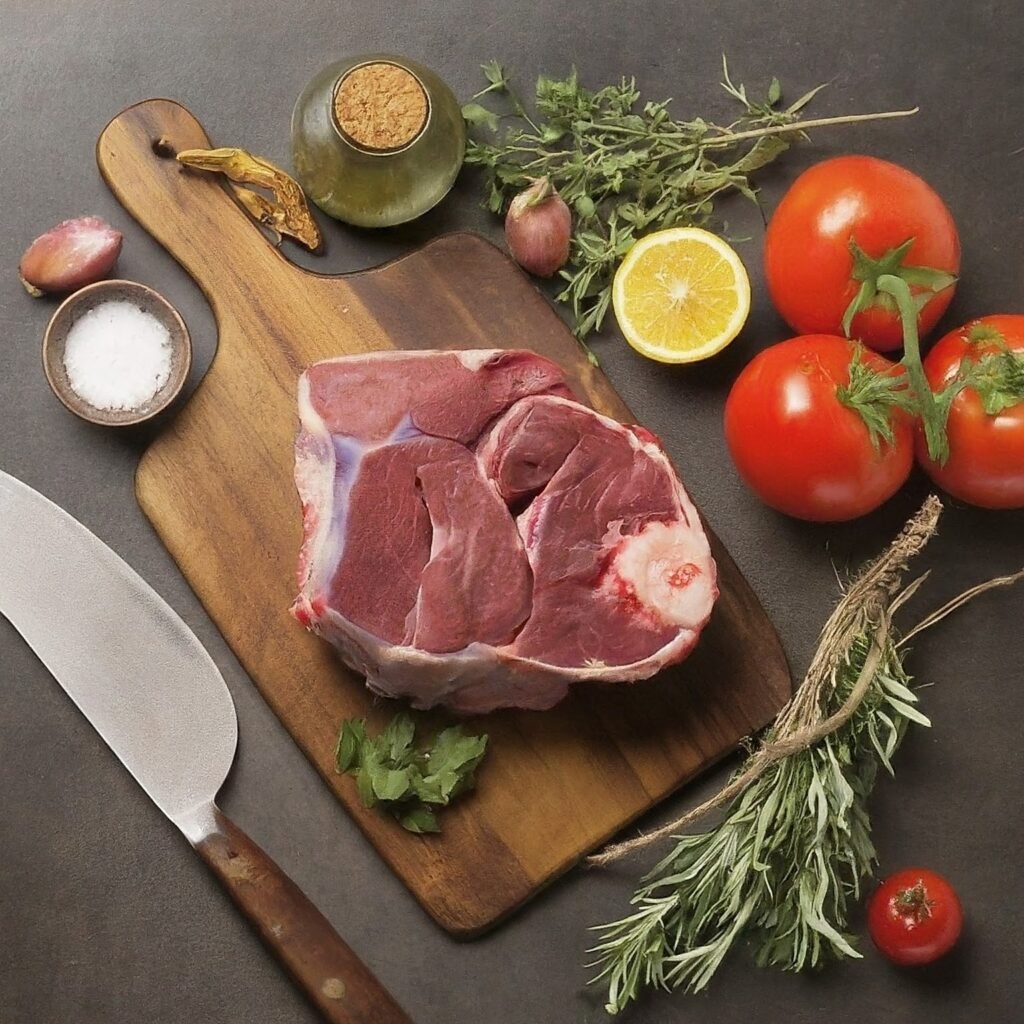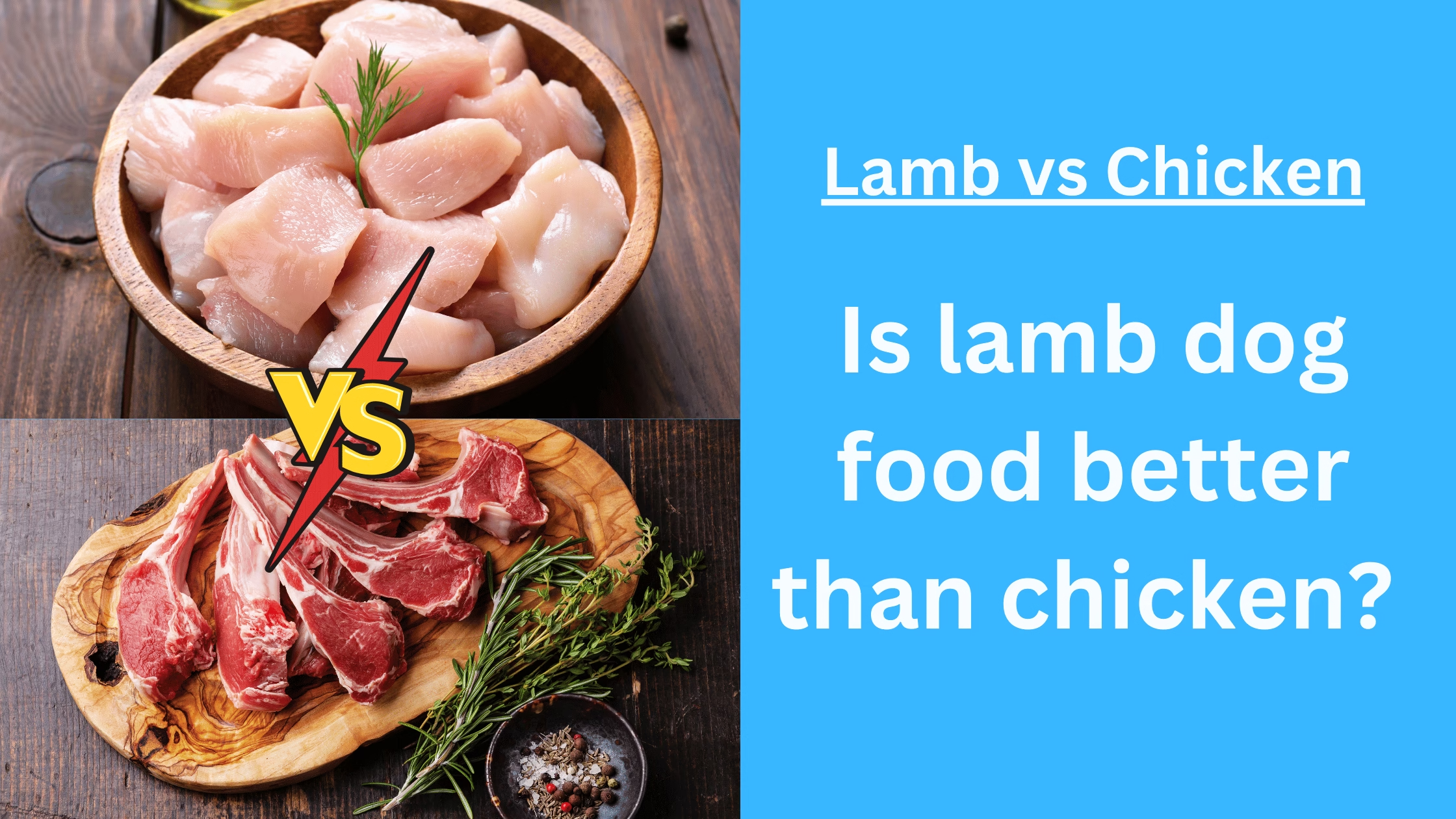Is lamb dog food better than chicken? – A Look at Lamb and Chicken Dog Food.
Every pup deserves top-notch grub. Just like us humans, a solid diet works wonders for their well-being. With a wealth of doggy dinners on sale, choosing the right one can be tricky.
A common question from dog owners is, “Lamb or chicken?” Both are frequent choices, but does one take the lead for dog food? It’s not a one-size-fits-all situation. Every dog is unique and has varying diet needs.
This manual discusses dog proteins, focusing on lamb and chicken. It presents the positives and negatives of each, and explains why protein is vital for a dog’s health, highlighting the specific perks each provides.
While lamb and chicken are both beneficial protein sources, the best choice hinges on your pet’s age, fitness level, and potential food sensitivities.
Armed with a clear understanding of both protein options, you can make the most informed choice for your furry friend’s wellness and contentment.
Understanding Protein in Dog Food: The Building Blocks of Canine Health

Dogs, like their human pals, need protein. This vital nutrient helps build muscles, power up their immunity, and boost energy.
Dogs also need different essential amino acids, the components of protein, to stay healthy.
Dog food has lots of different types of protein. Two that you see a lot are lamb and chicken. Each one offers different perks. Let’s explain:
Lamb: This tasty source of protein is easy to digest. This makes lamb a smart pick for dogs with sensitive stomachs. Lamb also offers zinc, great for skin and coat health, and B vitamins, which help process energy.
Chicken: This protein choice is lean and quite versatile. It’s a good fit for pooches that aren’t super active or need help keeping weight in check. Chicken is also a good source of glucosamine, perfect for keeping active canines’ joints healthy.
Heads up: Lamb and chicken are both good protein sources, but each dog is different. Some may have reactions or allergies to certain proteins. We’ll discuss this more in the next part.
Navigating the Maze: Allergies and Sensitivities in Dog Food
Though not as frequent as some believe, dogs can be allergic to lamb and chicken. Statistics show that one in ten dogs may be food allergic.
Certain signs could tell if a dog is food-sensitive, such as:
- Itchy skin, excessive scratching, or hot spots
- Chronic ear infections
- Vomiting or diarrhea
- Hair loss
Your veterinarian should be contacted if a food sensitivity in your dog is suspected. They can find out the specific protein causing the allergy, and can also suggest a diet exclusion process to find out the exact problem.
Lamb as a Hypoallergenic Alternative:
A less-allergenic choice. Given that lamb is used less often in dog food than chicken, it can be a viable option for pups with confirmed chicken allergies.
The immune system of dogs is less likely to react to lamb protein because it’s not commonly exposed to it.
Introducing New Food with Caution:
A slow approach is crucial when changing your dog’s food.
This gives their stomach time to adapt and helps in catching any likely sensitivity.
Start by introducing a tiny amount of the new food to their existing diet, steadily increasing the portion of the new food over a few weeks.
Keep a close watch on your dog for any undesired reactions during the switch.
Choosing the Right Food: A Balanced Approach Goes Beyond Protein
Protein is one part at the heart of your dog’s diet. Yet, it doesn’t stop there. For peak health, your pet requires a diverse diet high in required nutrients, vitamins, and minerals.
These parts unite to help a robust immune network, sturdy bones and teeth, glowing skin and hair, and good digestion. Look for a dog chow blend that includes these:
- Essential fatty acids: Omega-3 and Omega-6 fats help improve skin and hair, joint well-being, and brain function.
- Carbs: Carbs are fuel for your dog’s daily life. Seek complex carbs such as whole grains for long-lasting energy release.
- Fiber: Fiber aids good digestion and controls bowel regularity.
- Vitamins and minerals: These tiny nutrients have a big part in various body functions.
Shaping the Diet for Your Dog’s Wants:
Just like us, every dog has unique food needs based on their age and energy level.
- Puppies: Young puppies need a protein-rich diet for their quick growth.
- Adult Dogs: Food for adult dogs must meet their energy output based on how active they are.
- Old Dogs: Senior dogs might need a diet low in calories and easy to digest.
Addressing Certain Health Issues:
If your dog has health problems, a customized diet could be needed. These diets are made to handle conditions like allergies, joint problems, or weight control.
Speaking with Your Vet:
Picking your dog’s food is vital. Your vet is a handy helper in the sea of dog food choices.
They know your dog’s personal needs, thinking of age, breed, energy level, and any health conditions.
With these details, they can suggest the best food choice to support your dog’s lifelong health and happiness.
Lamb vs. Chicken: Is lamb dog food better than chicken?
Having examined the role of protein and what affects a dog’s food needs, let’s reconsider lamb versus chicken.
Here’s a basic rundown of the pros each protein brings:
Lamb:
- Highly digestible, making it a good choice for sensitive stomachs.
- Rich flavor is often more appealing to picky eaters.
- Excellent source of essential nutrients like zinc and B vitamins.
- Less common protein source, potentially reducing allergy concerns.
Chicken:
- Widely available and readily accepted by most dogs.
- Lean protein source, ideal for less active dogs or weight management.
- Good source of glucosamine, which can support joint health.
So, when should you choose lamb?
- If your dog suffers from a sensitive stomach and struggles with other protein sources,.
- If your dog has a confirmed chicken allergy and needs a hypoallergenic alternative,.
- If your dog is a picky eater and enjoys a richer flavor,.
When might chicken be a better option?
- If your dog has a history of readily accepting chicken-based foods,.
- If your dog is less active and requires a leaner protein source,.
- If your dog is overweight and needs a food formulated for weight management,.
The Variety Bonus:
While both lamb and chicken have unique benefits, adding different proteins to your dog’s diet can be helpful.
Switching proteins can introduce your dog to more crucial nutrients and keep meals fun.
Talk it over with your vet to make sure you’re offering a balanced and healthy meal plan for your dog.
Also Read: Is It OK to Switch Dog Food Flavors? – Best Practices.
Also Read: 8 Best Wet Dog Foods in the UK : Reviews and Recommendations
Conclusion: Fueling a Happy and Healthy Canine
There’s no single “best” protein source for dogs—lamb or chicken. It’s based on what suits your dog the most.
Weigh up each protein’s benefits and think about things like age, how active they are, and any sensitivities. This way, you’ll make a smart choice for their health.
Be a Keen Observer:
Keep an eye on how your dog feels and acts after trying new food. Watch their digestion, skin, and fur health for sensitivity signs.
Consult the experts:
For dog nutritional advice, your vet is a goldmine. Don’t shy away from asking them for help to pick out the perfect food for your furry buddy.
They can draft a customized diet plan for your dog, guaranteeing they blossom from a cute pup to a happy old dog.
Don’t forget, a cheerful dog is a healthy one! By offering a balanced diet loaded with key nutrients and proteins such as lamb or chicken, you’re building a roadmap for a long, fun-filled life together.
So, fuel their adventures and enjoy seeing your canine buddy wag their tail with joy!
Sources:







